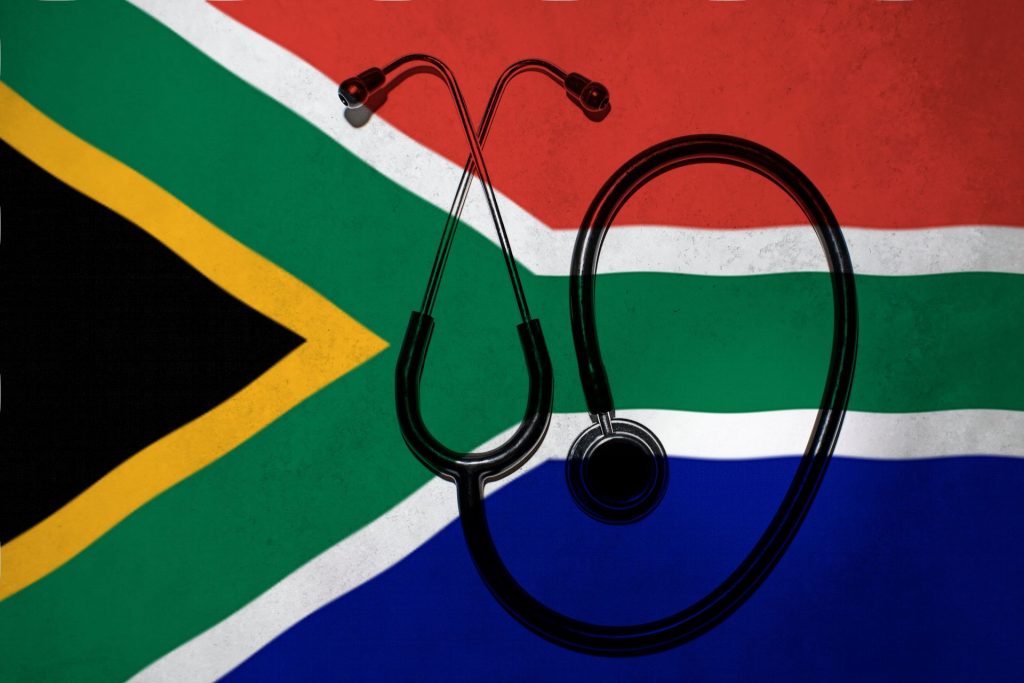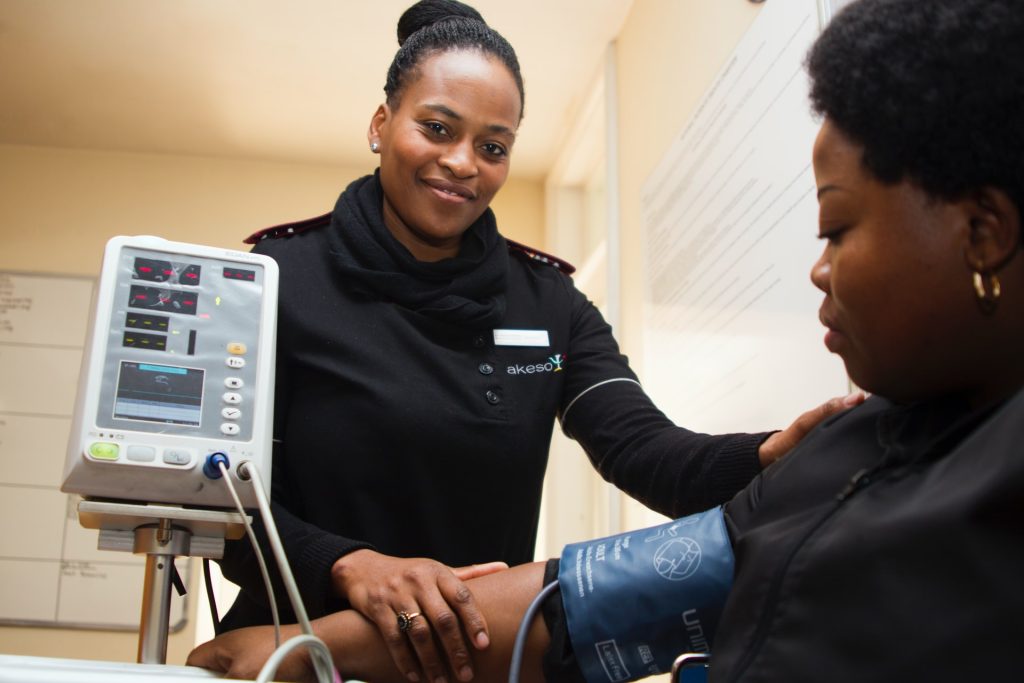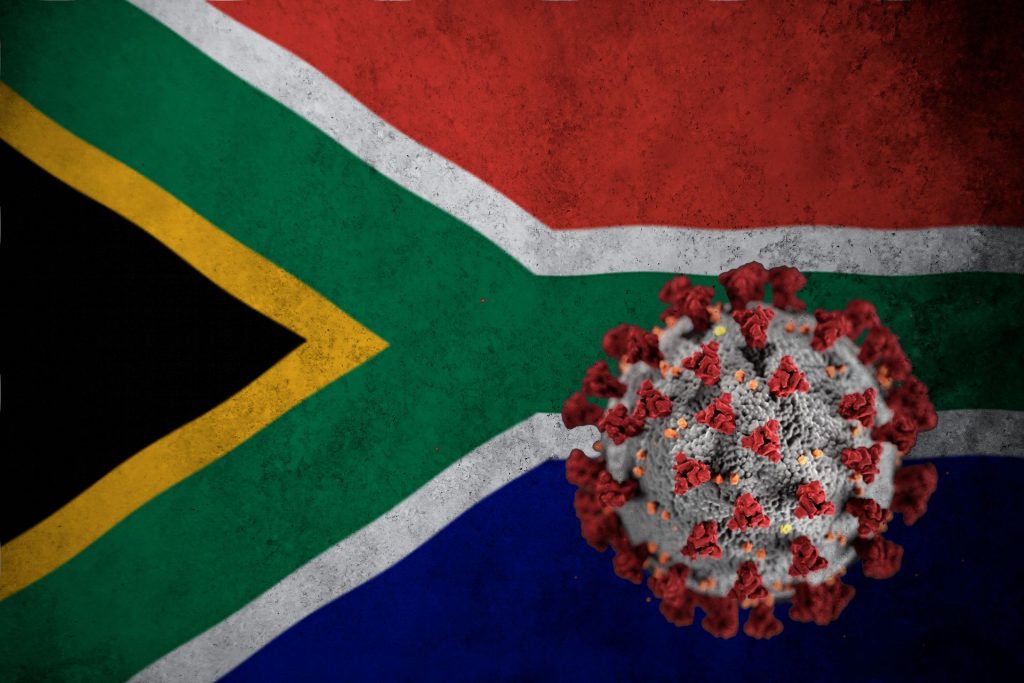A Humanist with an Unblinking gaze – Professor Ntobeko Ntusi Takes the Hot-seat at the South African Medical Research Council

Professor Ntobeko Ntusi may be softspoken, but he is not afraid to stand by his strongly held views. As he is set to take up the hot-seat at the country’s primary health research funder, he tells Spotlight’s Biénne Huisman about his background and his priorities for the new job.
Professor Ntobeko Ntusi’s bearing brings to mind the aphorism “speak softly and carry a big stick” cited by the 26th president of the United States Theodore Roosevelt.
Inside his office at Groote Schuur’s Old Main Building, department head of medicine at the hospital; Ntusi is soft spoken, his words a few decibels above a whisper. However his observations are thoughtful and sharp, crafted with precision. Known to call out issues around race and racism at South African universities – “inbuilt biases” even amongst young students – his level, unblinking gaze commands attention.
Born in Umthatha to academic parents, Ntusi at age 13 was named South African Junior Ballroom Dance Champion at an event in Sasolburg. Some three decades later, the cardiologist with qualifications from around the world, does not sidestep public healthcare debate in favour of keeping the peace.
Catastrophic budget cuts
Earlier this year, Ntusi publicly criticised healthcare budget cuts. R200 million was shaved off Groote Schuur’s coffers just last year, as the Western Cape Department of Health and Wellness announced an R807.8 million shortfall for the coming year. Speaking to Spotlight, Ntusi described communication on the matter by provincial government officials (with healthcare professionals) as “appalling”.
In February, Ntusi was one of a group of executives at the hospital – affiliated to the University of Cape Town (UCT) – who spearheaded a petition to national and provincial treasury, decrying “crippling austerity” and “catastrophic budget cuts”; saying how clinicians with multiplying work hours are watching patients deteriorate, as waiting lists for lifesaving elective surgery grow longer.
At a boardroom table inside his office, he says: “How we ration limited resources, this is causing real moral injury to our front-facing clinicians. I mean, we’re having to deal with complaints from patients who no longer have access to services they have grown accustomed to. This is causing a lot of distress, especially among young doctors, and medical registrars – the engine of our operation – who are increasingly anxious and taking time out for mental health reasons.”
In his present position, Ntusi’s voice has clout. He oversees thirteen divisions – from cardiology to pulmonology, and infectious diseases and HIV medicine – and corresponding research units such as the Desmond Tutu HIV Centre, directed by Professor Linda-Gail Bekker.
‘Hope cannot be a strategy’
Reflecting on how Groote Schuur’s management are responding to these challenges, Ntusi says the hospital’s CEO (since February) Shaheem de Vries, while new, in time ought to bring concrete priorities to the table. “It’s important to have hope, but hope cannot be a strategy,” he says.

This insight may well inform how he approaches his own new job as CEO and President of the South African Medical Research Council (SAMRC), taking over from Professor Glenda Gray. From July, Ntusi will give up his Groote Schuur office, putting away his clinician’s stethoscope, to take up the hot-seat at the country’s primary health research funder at its headquarters behind a facebrick facade in Parow. The SAMRC employs 718 employees and will see Ntusi answer to the National Department of Health, the SAMRC board, and the Parliamentary Portfolio Committee on Health (you can see the latest report to the committee here).
Across medical bureaucracies, budget remains an issue. The South African government allocated R1.35 billion to the SAMRC for 2023/24. In the council’s latest annual report, diminishing funding from government is listed as a threat; while the ability to attract external funding is listed as a strength.
“A key role of the President of the SAMRC is to engage with organisations like the Wellcome Trust [in the United Kingdom] and the NIH [the National Institutes of Health in the United States] and high worth individuals to attract funding,” says Ntusi.
He points out that the SAMRC has had clean audits for several years running – a remarkable achievement for a South African parastatal. Indeed, the council’s annual performance plan for 2024/2025 states: “Despite interruptions of COVID-19, SAMRC’s exemplary performance and good governance led to the organisation achieving four consecutive clean audits… It is the organisation’s intention to continue on the same path.”
On the SAMRC’s functions, Ntusi explains: “For government, the SAMRC plays a critical role in bridging the gap between strategy and policy, and implementation. In science, it plays a critical role in providing priorities for the funding of research, and capacity building…”
In the SAMRC’s last financial year, R61.6 million was allocated to funding 171 “research capacity development” grants, including 120 to women. The annual report describes this as funding “the next generation of health researchers… with most of these awards aimed at individuals from historically disadvantaged backgrounds.”
For Ntusi, points of focus to be expanded on at the SAMRC include health issues relating to climate or planetary change, epidemic preparedness, “restoring trust in science in an age of misinformation”, digital health and artificial intelligence; and projects linking South African scholars with research entities across Africa. “In many of these countries, they don’t have the research infrastructure and budgets we have in South Africa – it is important to assist them with projects.”
To the US and back home
When he was 14, Ntusi’s family – he is one of three boys – moved to the United States where his mother pursued a PhD in social work. In Philadelphia, Pennsylvania, he continued competitive ballroom dancing while attending Lower Merion High School, where a video on child birth showed in a biology class stirred his passions.
At liberal arts college Haverford, in Pennsylvania, he completed a BSc Honours in cellular and molecular biology, before returning “home” to South Africa in 1999, to enrol in medical school at UCT. Here his initial interest in obstetrics was disappointed – “it was loud and messy, an anti-climax” – seeing him drawn to internal medicine and cardiology instead. In following years, he would study cardiovascular medicine under mentorship of the late Professor Bongani Mayosi.
Like Mayosi, Ntusi was awarded the Oxford Nuffield Medical Scholarship, which funded his D.Phil at the University of Oxford in the United Kingdom. His doctoral research looked at cardiovascular magnetic resonance (CMR – noninvasive tests that produce images of a beating heart) to study inflammatory heart disease.
In 2016, Ntusi took over from Mayosi as head of Groote Schuur’s department of medicine, as Mayosi became dean of the university’s faculty of health sciences. At the time Ntusi continued treating cardiology patients, with ongoing research projects including on HIV-related heart disease.
Seven years later, against pale yellow walls (the same walls decorated by Mayosi back when it was his office) several art works and certificates attest to Ntusi’s time here. He points out one painting of student protestors made by a friend – based on the #FeesMustFall protests at the university in 2016 – “a difficult time”, he says.
In 2018, Mayosi’s suicide was partially attributed by some to pressures relating to the violent protests; while also putting a spotlight on pressure on prominent black academics at UCT, and other tertiary institutions in South Africa. An enquiry found that the “sometimes disrespectful manner” in which protest was conducted, and “instigation of students’ action by some of his colleagues”, caused Mayosi “a lot of distress”.
Displayed on a shelf, beside a stuffed doll of the Archbishop Desmond Tutu and a 2021 SAMRC gold trophy for “scientific achievement”, a burgundy-bound book recounts Mayosi’s legacy. Ntusi penned the introduction, where he writes: “Bongani Mayosi – as a leader, he was awesome. He is one of the most inspiring people I will ever know. He always reminded me: ‘a journey of a thousand miles begins with a few steps’.”
Asked about following in the footsteps of a star such as Mayosi, Ntusi replies: “I am his protégée. There were always room for me to build my own scientific investigations.”
Precarious times
As Ntusi is poised to depart from Groote Schuur, present dean of UCT health sciences Associate Professor Lionel Green-Thompson points out how the cardiologist cared for critically ill patients in COVID-19 high-care wards, particularly during the fear and uncertainty of hard lockdown.
“Sometimes we would work up to 16 hour shifts in the high-care wards; upon finally leaving I’d go outside to find anti-vaccine protestors in front of the hospital. I mean, they were just annoying,” Ntusi recalls.
“Communication around the AstraZeneca vaccine went very badly – increasing confusion and vaccine hesitancy. It is really, really important to advocate for vaccines. And this brings me back to the point of restoring people’s faith in science; redressing the public image of science, a priority I have for the SAMRC going forward.” (After procuring the AstraZeneca SARS-CoV-2 vaccine, the South African government decided early in 2021 not to use it after it showed limited efficacy against mild to moderate COVID-19 in a study.)
Foremost, Ntusi describes himself as a “humanist”. Apart from science, medicine and health equity, his interests include art, wine and dogs. Ntusi lives in Milnerton. A keen runner, he is a member of the Gugulethu Athletics Club.
Republished from Spotlight under a Creative Commons licence.
Source: Spotlight








